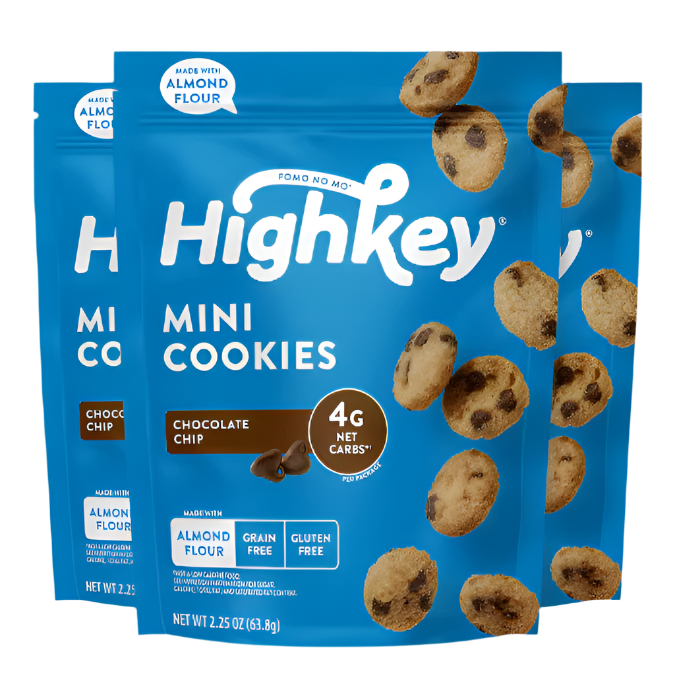Vegan Keto Diet: Meal Plan, Snacks & Tips
As oxymoronic as these two terms may be, it is in fact possible to eat a ketogenic diet and be vegan at the same time. Both eating styles have credible nutrition research behind them that span decades, addressing weight management, type 2 diabetes risk factors and more.
Health benefits associated with the vegan diet are attributed to a high dietary fiber content and the wide array of vitamins and minerals from plant-based foods. Whereas health benefits from the ketogenic diet are generally attributed to using fat as fuel and minimizing sugar content, which contribute to its use for treatment of epilepsy, as well as reduction of risk factors related to heart disease and type 2 diabetes.[i],[ii],[iii],[iv]
Vegan Keto Diet Plan
So, should you want to capture the benefits of both eating styles, check out this summary for blending the two. People following a vegan diet eat only plant-based foods for many reasons including animal welfare, as well as to limit animal-based fats and cholesterol in the diet. This type of dietary focus excludes anything of animal origin including:
- 🥩 Meat
- 🍤 Fish and shellfish
- 🥛 Milk, cheese, eggs, butter
- 🍯 Foods and beverages made with animal by-products (e.g. honey, gelatin)
A ketogenic diet is designed by very specific proportions of macronutrients – namely, very low carbohydrate, moderate protein and high fat content. This type of dietary focus forces fat to replace carbohydrate as the body’s primary fuel source. Among the most classic keto diet visuals is a steak, piled high with bacon, fried egg and avocado, no bun, no vegetables, no refined sugars. In truth, however, the balance in this eating plan has come a long way through the years to include all food groups (within strict daily proportions) including the following:
- Plant and animal-based proteins
- Low carb vegetables and fruits
- High fiber grains
- Healthful fats
So, what might you eat to satisfy both the vegan and keto-friendly diet? Here are some ideas:
- The ketogenic diet typically calls for about 20% of calories from protein which, for a vegan, could be sourced from nuts, nut butters, seeds, beans, tofu, tempeh, high-protein grains and protein-containing vegetables.
- While vegans might be less inclined to “beef”-up the fat in their diet, ketogenesis calls for ~75% of calories from fat. On the vegan spectrum, this would likely include plant-based oils, avocados, olives, coconut, nuts and nut butters.
- Reducing carbs to less than 5% would require a focus on low-carb vegetables and fruits and high fiber beans to meet calorie needs, but not exceed carb allowances.
Sample Menu*
Breakfast
Lunch
- Salad loaded with leafy greens, sprouts
- Tofu or tempeh-based chicken substitute
- Sesame seed sprinkles
- Small scoop of quinoa (1/4 cup or less depending on your macro needs)
- Dressing made with soy sauce and oils such as olive, avocado, coconut, sesame
- Salt, pepper or other seasonings
Snack
- Trail mix with nuts, seeds, toasted coconut, small amount of dried fruit
Dinner
- Shirataki noodles
- Stir-fried low-carb vegetables (e.g., eggplant, Brussels sprouts, cauliflower, mushrooms)
- Salted and seasoned edamame
- Cooked with oil
- Dressed with a blend of sesame oil, ponzu sauce
*Reminder, this sample menu is an example of what a vegan keto day of eating could look like. Everyone's macro splits and caloric intake are different so feel free to modify this plan to fit your needs.
Hmmm… just drafting that meal plan has queued my appetite! Maybe it’s just the foodie nerd in me, but as a registered dietitian, I am fascinated with the myriad ways we can approach nourishing our bodies, while adhering to a variety of dietary restrictions that have evidence-based health benefits. That said, I’m not sure a vegan-keto combination is for me, but the combination of these two plans may be just what your doctor ordered, which reminds me to say that it would be wise to discuss any restrictive dieting plan with a health professional or a registered dietitian nutritionist to make sure it is right for you, and to ensure you cover all of your basic nutritional needs. Then return here to share a comment or two about your success!
Sources
- [1] Cervenka MD, et al. The impact of the modified Atkins diet on lipid profiles in adults with epilepsy. Nutr Neurosci. 2016;19(3):131-137.
- [2] Aude YW, et al. The national cholesterol education program diet vs a diet lower in carbohydrates and higher in protein and monounsaturated fat: a randomized trial. Arch Intern Med. 2004 Oct 25;164(19):2141-6.
- [3] Chiu S. Comparison of the DASH (Dietary Approaches to Stop Hypertension) diet and a higher-fat DASH diet on blood pressure and lipids and lipoproteins: a randomized controlled trial. American Journal of Clinical Nutrition. 2016 ;103(2):341-7.
- [4] McKenzie AL, et al. A novel intervention including individualized nutritional recommendations reduces hemoglobin A1c level, medication use, and weight in type 2 diabetes. JMIR Diabetes 2017;2(1):e5.


